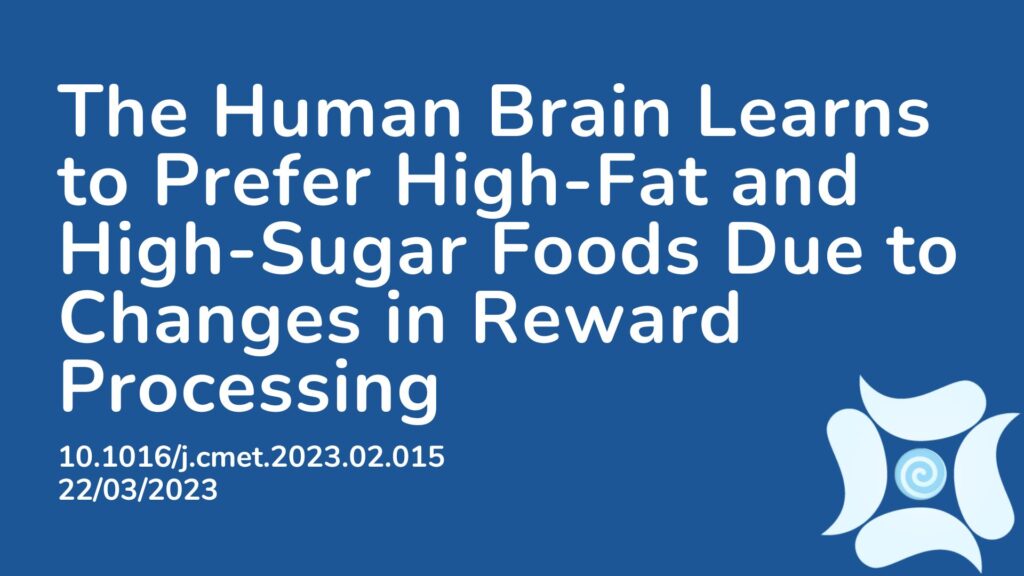Summary:
Researchers from Cologne have tested their hypothesis that the human brain learns to prefer high-fat and high-sugar foods after exposure. To examine this, the researchers administered one group of participants one high-fat and high-sugar food item per day for eight weeks to consume in addition to their regular diet. Another participant group also received one food item per day with the same calories, however it was low in fat and sugar. The brain activity of the participants was measured at baseline and then monitored during the eight weeks. The results showed that daily consumption of the high-fat and high-sugar snack altered brain activity such as human reward circuits and that these effects were observed despite no changes to metabolic health or body weight.
Abstract:
Western diets rich in fat and sugar promote excess calorie intake and weight gain; however, the underlying mechanisms are unclear. Despite a well-documented association between obesity and altered brain dopamine function, it remains elusive whether these alterations are (1) pre-existing, increasing the individual susceptibility to weight gain, (2) secondary to obesity, or (3) directly attributable to repeated exposure to western diet. To close this gap, we performed a randomized, controlled study (NCT05574660) with normal-weight participants exposed to a high-fat/high-sugar snack or a low-fat/low-sugar snack for 8 weeks in addition to their regular diet. The high-fat/high-sugar intervention decreased the preference for low-fat food while increasing brain response to food and associative learning independent of food cues or reward. These alterations were independent of changes in body weight and metabolic parameters, indicating a direct effect of high-fat, high-sugar foods on neurobehavioral adaptations that may increase the risk for overeating and weight gain.
Article Publication Date: 22/03/2023
DOI: 10.1016/j.cmet.2023.02.015



